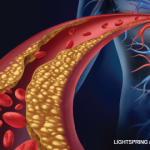Patients with systemic lupus erythematosus (SLE) are at increased risk of developing cardiovascular disease. Although this risk has been well studied, past studies have used clinic- and hospital-based registries and cohorts, limiting the ability to generalize the results.
J. Antonio Aviña-Zubieta, MD, PhD, and colleagues from Arthritis Research Canada and The University of British Columbia in Vancouver, Canada, designed a general population-based study to evaluate the risk of cardiovascular disease and events in patients newly diagnosed with SLE. The researchers also examined the time trends of relative risk following SLE diagnosis. The results of their research were published in June 2017 Arthritis Care & Research.
Data for this study came from the Population Data BC, which includes all residents of British Columbia, Canada, as well as a comprehensive prescription drug database of all medication dispensed to residents of British Columbia. Researchers identified 4,863 SLE cases diagnosed between January 1996 and December 2010. The incidence rates of myocardial infarction, ischemic stroke and cardiovascular disease for this population were calculated and compared with non-SLE patients (49,316) who had similar demographics.
The Results
“The risks of [myocardial infarction], stroke and [cardiovascular disease] in SLE patients are substantially higher when compared [with] non-SLE controls, with a greater than two-fold increase of risk,” write the authors in their discussion. “Overall, the elevated risk was six-fold during the first year after SLE diagnosis and remained significantly high even after five years. These risks were independent of traditional risk factors for [cardiovascular disease].”
For SLE patients, the incidence rates of myocardial infarction, stroke and cardiovascular disease were 6.4, 4.4 and 9.9 events per 1,000 person-years. They were 2.8, 2.3 and 4.7 events per 1,000 person-years for the non-SLE group. The fully adjusted multivariable hazard ratios for SLE patients were 2.61 (95% confidence interval [95% CI] 2.12–3.20) for myocardial infarction, 2.14 (95% CI 1.64–2.79) for stroke and 2.28 (95% CI 1.90–2.73) for cardiovascular disease.
Additionally, compared with the non-SLE group, SLE patients used glucocorticoids and COX-2 inhibitors more often. The researchers note that it is possible that glucocorticoids may potentially contribute to cardiovascular disease at a later point in the disease.
Due to the use of a general-population database, the researchers say their findings are more generalizable to the population at large than previous studies. “We rigorously adjusted for competing risks, unmeasured confounders and an extensive list of covariates, including medication use, preexisting comorbidities and healthcare resource utilization,” they write. “Our results remained statistically significant after these adjustments, suggesting the increased risk of [cardiovascular disease] is primarily due to SLE itself.”

